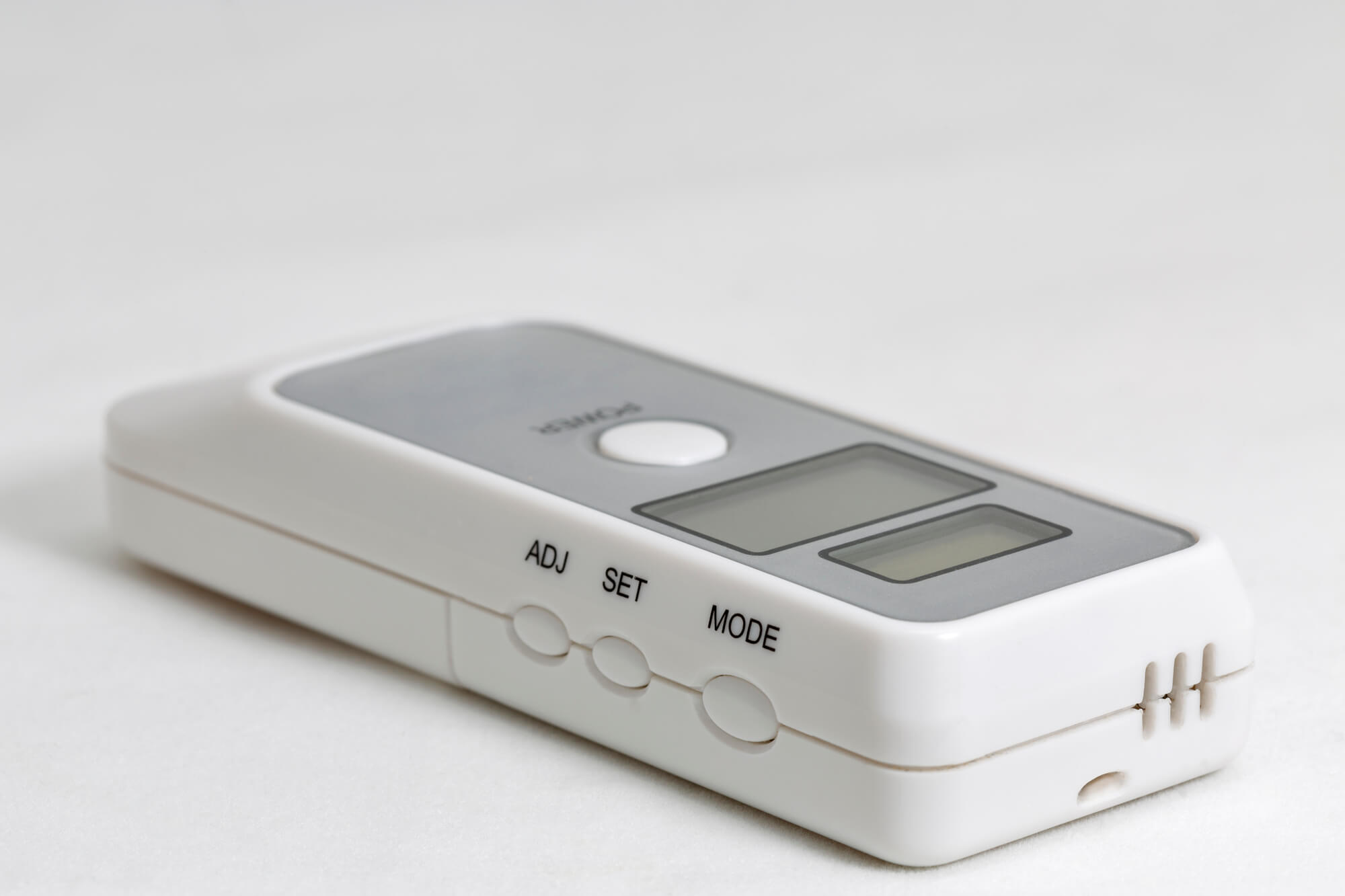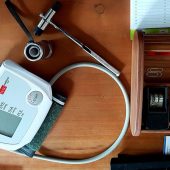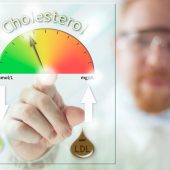Ketone testing is important for diabetics and people on a low carbohydrate diet.
There are several ways to measure the amount of ketones that your body is producing. The most popular is using a breath meter. It is an affordable and easy ketone testing method. However, it’s accuracy is debatable.
In this post, we discuss the accuracy of ketone breath meters and whether you should use one to monitor your ketone levels. We also include tips for how to measure your ketones more accurately.
What Is A Ketone Meter?

A ketone meter is a device that measures the amount of ketones or ketone bodies in the body. Ketones are chemicals produced by the liver after it breaks down fat through a process called ketogenesis.
Normally, ketogenesis is nothing to worry about since it produces few ketones that are easily flushed out of the body. But if your body is not getting enough sugar from which it can produce energy, it turns to fat for energy breakdown.
In diabetics, especially Type 1 diabetes, low levels of insulin can prevent the body from absorbing blood sugar for energy.
This ramps up ketogenesis as the body breaks down fat for energy. As ketones quickly build up, they turn the blood acidic, which can be really dangerous. This potentially fatal condition is called diabetic ketoacidosis.
A ketone meter is an important tool in the management of type 1 diabetes.
You can also deliberately build up ketones in your body through a low carb diet such as keto. For most people, this type of ketogenesis is safe. In that case, a ketone meter can tell you whether you are in ketosis.
3 Types Of Ketone Meters
Before we talk about the accuracy of ketone breath meters, let’s briefly look at the different types of ketone meters.
There are three types of ketone tests, each measuring different types of ketone bodies.
Urine Ketone Testing
Urine ketone testing is the cheapest option since all you need are test strips.
To measure ketones in urine, you dip a strip into a fresh sample of your urine. You wait for the recommended number of seconds then compare the colour of the strip to a colour chart.
This tells you the approximate level of ketones your body is producing. Urine ketone strips measure acetoacetate ketone bodies.
Urine testing is the most unreliable way of measuring ketones in your body.
One of the reasons is because it only measures excess acetoacetate ketone bodies. After the body has used the acetoacetate ketones it needs for energy, the rest are excreted through urine.
Thus, a urine test doesn’t reflect the actual amount of ketones your liver is producing.
Factors like hydration can also affect the concentration of acetoacetate in your urine, which adds to the inaccuracy of the test.
Urine ketone testing is even less reliable when measuring mild levels of ketosis.
You could use urine strips to monitor the overall trend in your ketone levels. But I only recommend doing this if you are measuring ketones for dietary purposes.
But keep in mind that in the long term, as your body becomes more efficient at utilising ketones for energy, there will be fewer of them in urine. So urine test strips will get less and less reliable over time.
If it’s for a medical condition like diabetes, avoid urine testing as the low accuracy can put your health at risk.
Breath Ketone Testing
Most people looking to get a better idea of how their ketone levels vary over time turn to a ketone breath meter.
It’s a bit more expensive than urine strips, but it’s more accurate. It’s also less invasive.
One of the most common signs of diabetic ketoacidosis is ‘acetone breath’. This is when your breath smells a bit like nail polish remover because of the presence of acetone ketone bodies. People who are on the keto diet or are fasting also have an acetone breath.
It’s these acetone ketones that a breath meter measures. These ketones are produced after fat metabolism and are exhaled through the lungs.
While a lot more accurate than urine strips, ketone breath testing is still not as accurate as a ketone blood test. That’s why a blood test is the go-to option in medical or clinical situations.
But it’s good enough for everyday use at home to track ketosis or ketone levels.
Blood Ketone Testing
Blood ketone test kits are more expensive than urine and breath test kits. That’s one of the main reasons many people stay away from ketone blood testing.
But ketone blood testing is the most accurate way to measure ketone levels in your body.
Blood testing measures beta-hydroxybutyrate ketone bodies, the main source of energy for the body during ketosis. Measuring these ketones gives you the most accurate picture of your body’s state of ketosis.
Measuring blood ketones is very similar to measuring blood glucose. You prick your finger and collect a tiny drop of blood on a strip.
A ketone meter then tells you the level ketones you have in your body.
How Accurate Is a Ketone Breath Meter
Let’s talk a bit more about ketone breath meters and their accuracy.
Ketone breath meters are more reliable than urine test strips. One study found that there’s a close association between the results of a breath ketone analyzer and a blood ketone test.
The study concludes that a breath meter can be reliably used to check for ketosis in adult diabetes patients.
However, acetone breath analysis doesn’t have the pinpoint accuracy of a beta-hydroxybutyrate blood test.
One reason for this is that there are many factors that determine the concentration of acetone in your breath. These include exercise, macronutrient intake, how many calories you are taking in and even pulmonary factors such as lung health.
It’s hard to control for all these factors in a home setting. It’s not uncommon to get different results from a ketone breath meter even when you test within the same time period.
What a ketone breath meter is good for is tracking change in ketone concentrations over time. It can also tell you whether you are in ketosis or not.
For dietary purposes, a ketone breath meter is fine. But you can track your ketone levels a lot more accurately using a blood test kit.
If you are measuring ketones for health reasons such as type 1 diabetes, ask your doctor which kind of test they recommend.
How To Measure Ketones Accurately
Here are some tips for improving the accuracy of a ketone breath meter.
- The best time to take a ketone test is first thing in the morning before you eat or drink anything. Don’t even brush your teeth.
- Repeat the test everyday at the same time. This will give more reliable readings compared to doing multiple tests in a day. If you need to test your ketones several times a day, a blood test kit is the best choice.
- Alcohol can throw off a ketone test, and even damage the ketone meter sensor. If you had taken alcohol the evening or night before, do not use the ketone meter in the morning. Wait until the next day in the morning.
- Also avoid eating or drinking anything with alcohol in it before using a ketone breath meter. For instance, the alcohol in mouthwash can result in a high reading.
- Replace the breath meter if it falls or sustains some kind of damage. A faulty sensor can result in inaccurate readings.
- Before you use the breath meter, read the user manual for usage instructions.
- Keep a record of your test results. If your ketone meter doesn’t store readings, you can write them down in a diary, journal or app. This not only makes it easier to track your ketone levels over time, you can also tell when the ketone meter is not working properly.
Here’s a helpful video on how to use a ketone breath meter.
Final Thoughts
If possible, do not use urine test strips to measure your ketone levels whether it’s for dietary or health reasons. A urine test is highly unreliable.
If budget allows, a ketone blood test kit is the most accurate choice. It’s especially ideal for managing type 1 diabetes and other health conditions.
If you want a cheaper and less invasive way to track ketone levels, a ketone breath meter is good enough. Just make sure you use it the right way to improve accuracy as much as you can.


